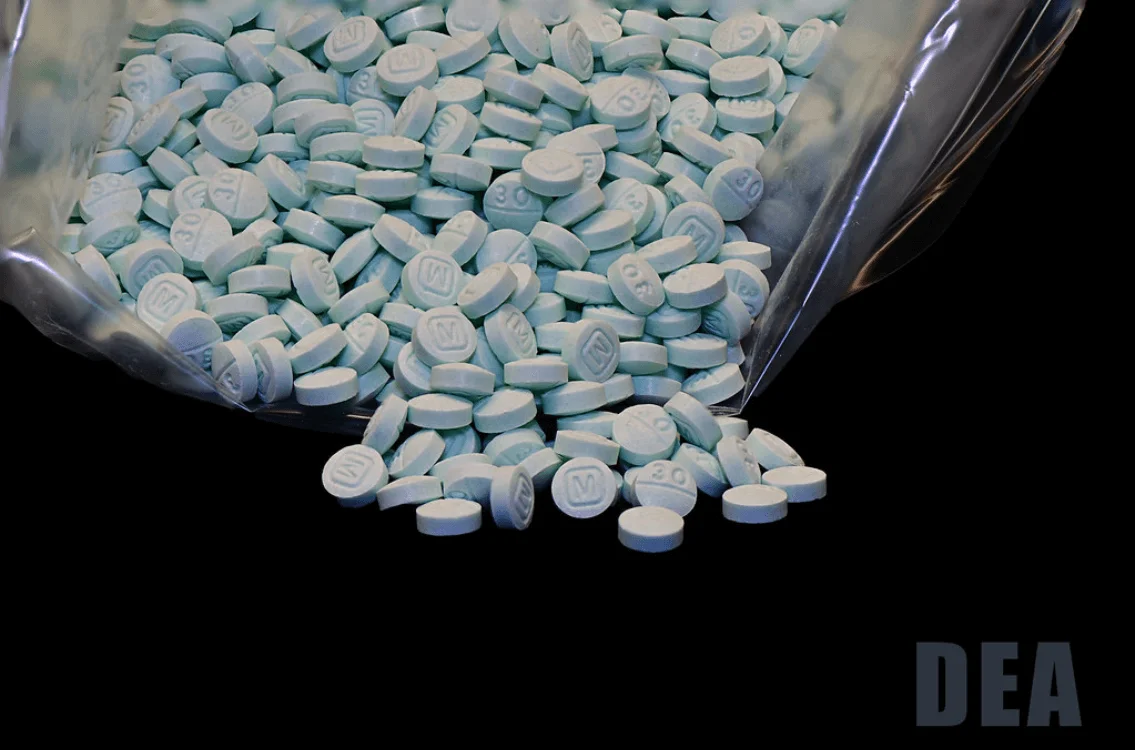
How to Help a Loved One with Fentanyl Addiction
Discovering that a loved one is grappling with fentanyl addiction can be a heart-wrenching revelation. This journey, often shrouded in fear and uncertainty, can leave you feeling helpless.
Yet, it’s crucial to remember that hope is not lost. At Resilient Recovery, we understand the complexities of addiction, especially one as formidable as fentanyl dependency. Our approach is rooted in empathy, recognizing the unique struggles each faces.
Fentanyl, a potent opioid, has a grip that can seem unbreakable. But beneath the surface of addiction lies a person yearning for support and understanding. It’s about seeing beyond the addiction, acknowledging the person who is fighting a battle they never chose. This blog post aims to guide you through the nuances of supporting a loved one on their journey to recovery.
We’ll explore practical steps, emotional support strategies, and the importance of professional help, all while keeping the well-being of both you and your loved one at the forefront.
Embarking on this path requires courage, patience, and unwavering support. Remember, you’re not alone in this. Together, with compassion and informed action, we can pave a path towards healing and recovery. Let’s take this step forward, embracing hope and the possibility of a brighter, addiction-free future.
Understanding Fentanyl Addiction
What is Fentanyl?
Fentanyl is a synthetic opioid renowned for its extreme potency. It’s up to 50 times more potent than heroin and 100 times more than morphine. Initially developed for pain management, particularly for cancer patients, fentanyl has unfortunately become a key player in the opioid crisis due to its misuse.
Its potency is not just a matter of strength but also a significant contributor to its danger, especially when illicitly mixed with other drugs.
The Danger of Fentanyl
The real peril of fentanyl lies in its capacity to cause overdose, often unknowingly, as it is frequently mixed with other substances like heroin or cocaine.
This mixing amplifies the effects unpredictably, leading to a higher risk of a fatal overdose. The CDC’s information on fentanyl provides further insights into its dangers.

How Addiction Develops
Addiction to fentanyl, like other forms of drug addiction, often begins innocuously. It might start with a prescription for pain or as an escape from emotional distress. The drug’s profound impact on the brain’s reward system leads to a powerful, often uncontrollable urge to use more.
This section is crucial for understanding the challenges faced by those struggling with addiction, emphasizing empathy and the need for a supportive approach. For more information on how addiction develops, visit the National Institute on Drug Abuse.
At Resilient Recovery, we approach fentanyl addiction with a deep understanding of its complexities. Recognizing the individual behind the addiction is at the heart of our treatment philosophy.
Our approach is tailored to each person’s unique journey, offering hope and a path to recovery.
Recognizing the Signs of Fentanyl Addiction
Common Signs and Symptoms of Fentanyl Addiction
Fentanyl addiction, like other forms of substance abuse, manifests in various physical, behavioral, and psychological signs. Recognizing these signs early can be the difference between life and death. Here are some common indicators:
Physical Symptoms:
- Shallow or slowed breathing
- Fatigue or drowsiness
- Constricted pupils
- Nausea or vomiting
- Itching or scratching
- Seizures
Behavioral Signs:
- Increased secrecy or lying
- Withdrawing from family and friends
- Sudden financial difficulties
- Neglecting responsibilities and personal hygiene
- Visiting multiple doctors to obtain prescriptions
Psychological Symptoms:
- Mood swings
- Depression or anxiety
- Paranoia
- Disinterest in previously enjoyed activities
- Intense drug cravings
For a more comprehensive list and detailed descriptions, consider consulting SAMHSA’s guide on opioid addiction.
The Importance of Early Recognition
Early recognition of fentanyl addiction is paramount. The sooner an addiction is identified, the higher the chances of successful intervention and recovery.
Fentanyl, given its potency, poses a higher risk of overdose, making timely intervention crucial. Recognizing the signs is not about placing blame or judgment but understanding and providing the necessary support.
Communicating with Your Loved One
Approaching the Conversation
When it comes to discussing addiction with a loved one, the approach is crucial. Start by choosing a time and place where you both feel comfortable and won’t be interrupted.
Approach the conversation with compassion, not confrontation. It’s important to express your concerns without making your loved one feel attacked. Use “I” statements, like “I feel worried when I see you struggling,” to convey your feelings without placing blame.
Emphasizing Empathy and Understanding
Remember, addiction is not a choice but a complex health issue. Show empathy by acknowledging the challenges your loved one is facing.
Let them know you understand that overcoming addiction is complex and that you’re there to support them. Avoid judgmental language or expressing frustration, which can lead to defensiveness and shut down communication.
Active Listening
Active listening is critical. This means hearing what your loved one is saying and responding in a way that makes them feel heard and understood. Ask open-ended questions like, “How can I support you?” or “What do you feel you need right now?” This invites them to share their feelings and needs.

Offering Support and Resources
Let your loved one know that there are resources available to help them. This could include professional treatment options, support groups, or educational materials.
At Resilient Recovery, we offer a range of services to support individuals with substance use disorders. Encourage them to explore these options, but remember, the decision to seek help must ultimately come from them.
Maintaining a Supportive Environment
Creating a supportive environment is crucial. This means being patient and understanding that recovery is a journey with ups and downs. Avoid enabling behaviors but continue to offer love and support.
Remember, you’re not alone in this. There are resources and support groups for families and friends of those struggling with addiction.
Communicating with a loved one about their addiction can be challenging, but it’s an essential step in helping them towards recovery. By approaching the conversation with empathy, understanding, and support, you can make a significant difference in their journey.
Seeking Professional Help
The Necessity of Professional Treatment
When it comes to fentanyl addiction, professional help is not just beneficial; it’s often essential. The potency and dangers associated with fentanyl make it particularly challenging to overcome without expert intervention.
A structured treatment program can provide the necessary tools and support for effective recovery. It’s important to understand that seeking professional help is a sign of strength and commitment to better health, both for the person struggling and their loved ones.
Choosing the Right Treatment Program
Selecting the right addiction treatment program is a critical step. Look for programs that offer personalized care tailored to the individual’s specific needs. Consider factors like the type of treatment methods used, the qualifications of the staff, and the program’s overall philosophy.
At Resilient Recovery, we focus on providing comprehensive care that addresses not just the physical aspects of addiction but also the emotional and psychological factors. Our approach includes a combination of medical treatment, therapy, and support services designed to promote long-term recovery.
Resilient Recovery’s Approach
Our treatment programs at Resilient Recovery are designed to support your loved one through every step of their journey. We offer various services, including detoxification, individual and group therapy, addiction counseling, and aftercare planning.
Our team of professionals is dedicated to providing compassionate, evidence-based care. We understand that each person’s path to recovery is unique, and we tailor our approach to meet those individual needs.

The Role of Friends and Family Members
The support of friends and family members is an invaluable part of addiction treatment. Your involvement can provide additional motivation and encouragement for your loved one.
We encourage family participation in the recovery process, offering resources and guidance on supporting your loved one best. Remember, your well-being is also important.
Seeking support for yourself, whether through counseling or support groups, can help you navigate the challenges of having a loved one with an addiction.
Embracing Long-Term Recovery
Recovery from fentanyl addiction is a long-term process that requires ongoing support and commitment. It’s essential to have realistic expectations and to be prepared for the ups and downs of the journey.
At Resilient Recovery, we emphasize the importance of aftercare and ongoing support to maintain sobriety and prevent relapse. We aim to empower individuals and their families with the tools and resources needed for sustained recovery.
Supporting Through Treatment
Being Present and Supportive
One of the most impactful ways you can support a loved one during treatment is by being present and available. Regular visits, phone calls, or messages can make a significant difference.
It shows your loved one that they are not alone in this journey. Remember, your support can be a powerful motivator in their recovery process.
Positive Reinforcement
Positive reinforcement is vital in supporting someone recovering from an addiction. Celebrate their milestones, no matter how small they may seem.
Acknowledge the effort it takes to stay on the path of recovery. This positive reinforcement helps build self-esteem and reinforces the benefits of sobriety.
Maintaining Hope
Maintaining a hopeful outlook is crucial. There will be challenges and possibly setbacks, but it’s essential to stay focused on the long-term recovery goal.
Encourage your loved one by reminding them of their strengths and the progress they’ve made. Your belief in their ability to recover can be a powerful source of encouragement.
Preparing for Long-Term Recovery
Understanding the Nature of Recovery
Recovery from fentanyl addiction is a long-term commitment. It’s important to understand that recovery is not a linear process; there may be setbacks along the way. Preparing for this reality can help you and your loved one manage expectations and stay committed to the recovery journey.
Creating a Supportive Environment
Creating a supportive environment at home and in your loved one’s social circles is essential.
This might involve making changes to routines, avoiding triggers, and ensuring that your home is a safe and substance-free space. Encourage involvement in healthy activities and hobbies that support a sober lifestyle.
Preventing Relapse
Relapse prevention is a critical aspect of long-term recovery. This includes recognizing warning signs, having a plan for dealing with cravings or stressful situations, and continuing engagement with support groups or counseling. Treatment centers like Resilient Recovery offer resources and guidance on relapse prevention strategies.
Ongoing Support
Continued support from family members or close friends is vital. This support can take many forms, from attending therapy sessions with your loved one to simply being there to listen. Remember, your support plays a crucial role in your loved one’s addiction recovery journey.
Resources and Support for Families
Finding Support Groups
Support groups play a vital role in providing emotional and practical support to families of those struggling with addiction. These groups offer a safe space to share experiences, learn from others, and find comfort in knowing you’re not alone.
Organizations like Al-Anon Family Groups and Nar-Anon specifically cater to families and friends of individuals with substance abuse issues.

The Role of Family Therapy
Family therapy can be an invaluable resource in navigating the complexities of a loved one’s addiction. It helps address the impact of dependence on the family as a whole and improves communication and relationships within the family unit.
Many addiction treatment centers, including Resilient Recovery, offer family therapy sessions as part of their comprehensive treatment programs. Learn more about family therapy in addiction treatment.
Mental Health Services for Families
Family members must take care of their own mental health while supporting a loved one through recovery. Seeking professional help for yourself can provide you with the tools and coping strategies needed to manage the stress and emotional toll of dealing with addiction.
The Substance Abuse and Mental Health Services Administration (SAMHSA) offers resources and guidance on finding mental health services.
Educational Resources
Educating yourself about addiction and recovery can empower you with knowledge and understanding, making you better equipped to support your loved one. Websites like the National Institute on Drug Abuse (NIDA) provide a wealth of information on substance abuse and mental health.
Taking Care of Yourself
Remember, taking care of yourself is not selfish; it’s necessary. Engaging in self-care activities, maintaining your own social connections, and setting boundaries are important for your well-being. This self-care enables you to be a stronger support for your loved one.
Conclusion – Key Points
As we wrap up our discussion on supporting a loved one through fentanyl addiction, let’s highlight the key takeaways in an easy-to-read format:
- Recognizing Addiction Signs: Early identification of signs in your loved one can be life-saving. Look for changes in behavior, physical health, and emotional well-being.
- Empathy in Communication: When talking to someone with an addiction, use empathetic and non-judgmental language. Active listening and understanding are crucial.
- Seeking Professional Help: Professional treatment, like that offered at Resilient Recovery, is essential for effective recovery from fentanyl addiction.
- Support During Treatment: Be a pillar of support during your loved one’s treatment. Offer encouragement, celebrate progress, and maintain a hopeful outlook.
- Preparing for Long-Term Recovery: Recovery is an ongoing journey. Help your loved one by creating a supportive environment and understanding the nature of long-term recovery.
- Family Involvement and Self-Care: Engage in family therapy sessions and prioritize your own mental health to better support your loved one.
- Utilizing Available Resources: Take advantage of resources and support groups for both the individual in recovery and their family members.
- Encouraging Action and Hope: Motivate your loved one to seek help and remind them that recovery is a journey filled with hope and possibility.
These points encapsulate the essence of our guide, emphasizing the importance of support, understanding, and professional help in the journey toward recovery. Remember, at Resilient Recovery, we are here to offer the help and support needed for you and your loved one.
